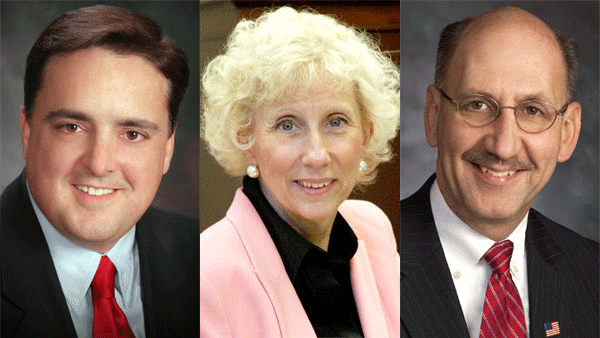June 08, 2011|By Jenna Portnoy, OF THE MORNING CALL
A steep overlook near Kirkridge Retreat Center provides a sweeping view of the Minsi Lake corridor connecting some of the nation's most pristine lands: the Appalachian Trail and Cherry Valley National Wildlife Refuge.
But the same deep valley and marshlands that environmental advocates say make 130 acres along Kittatinny Ridge ideal for preservation cause others to wonder if the purchase is the best use of taxpayer dollars.
Northampton County, Upper Mount Bethel Township and the state are considering investing a combined $650,000 on the natural areas. The township has yet to spend any open space dollars on farms — to the chagrin of some residents.
The Nature Conservancy, which is brokering the deals, argues the land is needed to maintain water and air quality and wildlife habitats as well as expand one of few contiguous woodlands in eastern Pennsylvania.
Most of the acreage belongs to the nonprofit Kirkridge Retreat Center, whose board of directors has turned down past offers to protect the land forever with a conservation easement.
If the deals go through, the public could park in Kirkridge's lot on Fox Gap Road to access existing trails linked to the Delaware Water Gap National Recreation Area. Hikers now park along Route 191 and have to cross the busy highway.
"Everybody in Upper Mount Bethel lives downhill from here and if they care about protecting their water and scenic views and rural nature of their community, they'll support this," Ellen Lott, project manager at the conservancy, said during a recent visit.
But critics say public dollars should be used to buy land most at risk of development, such as farmland, not steeply graded tracts dotted with swampy patches.
"The long and short of it is it's lousy land," Northampton County Councilman Ron Angle, who represents the Slate Belt district which includes the properties in question, said last week. "That's not where developers are going to go. There's never been a subdivision in that area."
Angle, also a member of the county's farmland preservation board, said he believes the per-acre asking price is too high, rivaling in some cases what the county offers farmers.
Lott said land was appraised by a professional. Five years ago, council set aside the money to preserve other natural areas, but those deals never came to fruition. That money would be used now for the Kirkridge deal. Lott added that the swampland "is critical because it filters our water," vernal pools are home to frogs and salamanders, and the ridge is a major migratory bird corridor.
Some on County Council objected last week to weighing in until township supervisors give their approval. A township vote is set for Monday; County Council could take up the matter June 16.
Under the proposal, Kirkridge would sell the development rights for $4,500 an acre, or a total of about $500,000. That works out to $250,500 from the state Department of Conservation and Natural Resources, $199,400 from the county and $51,100 from the township.
The conservancy also proposes purchasing 22 contiguous acres with $76,250 from the state, $61,000 from the county and $15,250 from the township. A third privately owned parcel could be slated for preservation next year; the current asking price is $255,000 for an easement on 49 acres.
Not everyone is sold on the benefits of natural areas, when so much farmland has fallen to developers over the years. Township residents Antoni and Carol Scott noted at last week's County Council meeting that three years' worth of earned income tax revenue set aside for open space remains untouched until now.
"In good economic times when things start to improve the first thing a developer will do when they come into Upper Mount Bethel Township is they will look at farms that are in trouble," Antoni Scott told County Council.
Township Supervisor Judy Henckel, head of the board that recommends how the township should allocate open space money, favors protecting the water and forestry resources. She said the county and state have already partnered to preserve eight farms, or 1,142 acres, within the township.
"It's not like we ignored [farmland] but that county program preserved some farms, probably most of our best, and we just didn't have that many farms in the process," she said Friday.
Meanwhile four Upper Mount Bethel farms applied to the county for preservation this year; two of those rank high based on soil quality, development potential and proximity to other preserved land. The county revised its guidelines this year to give municipalities that chip in funds more control over which land is preserved, but Henckel said the township wanted to observe the process for a year before pitching in its earned income tax revenue.
In defense of the Kirkridge properties, she said zoning petitions and advances in experimental sewer systems could make development on the steep grades and vernal pools possible.
Kirkridge Director Jean Richardson cautioned that a future board of directors could decide to sell the land for three or four times the price of the easement.
"There are rare opportunities in life when things come together and you have to say yes or no," she said. "This window may not open again."
jenna.portnoy@mcall.com
610-820-6586
Both sides now
For preservation
Protects water and air quality, habitats
Money is already allocated
Kirkridge could make more on a private sale
Against preservation
Farmland faces greater risk of development
Land not well-suited for homes
Township has not voted yet


